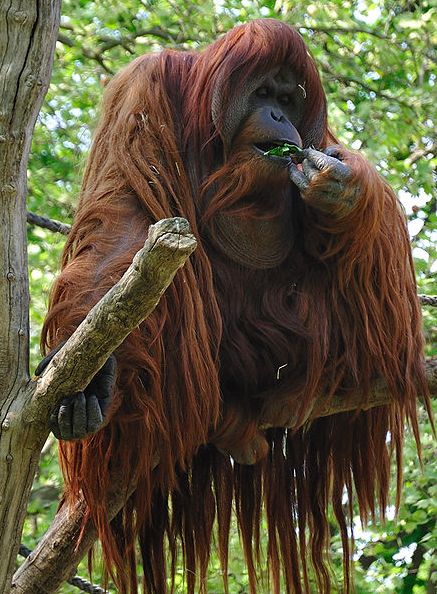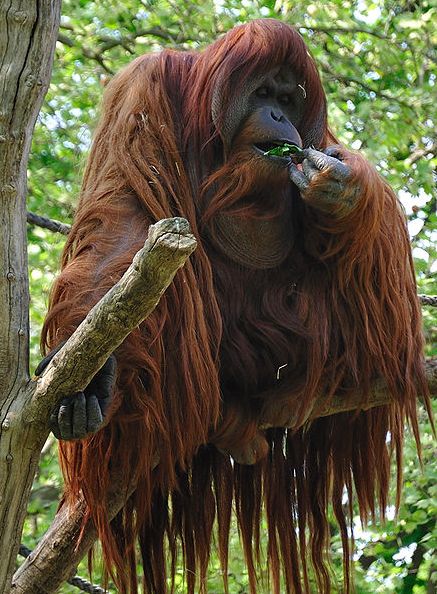 Photo: Wikimedia Commons.Have you bought soap in the past week? How about lipstick? Cheerios? Soy milk?
Photo: Wikimedia Commons.Have you bought soap in the past week? How about lipstick? Cheerios? Soy milk?
Today, a new report reveals that the nation’s largest private agribusiness company — Minneapolis-based Cargill — is a major culprit behind rainforest destruction. It turns out that Cargill, who both owns their own palm oil plantations and buys and trades palm oil from others, is directly destroying rainforests in Indonesia to produce palm oil. In fact, since 2005, Cargill has mowed down an area of rainforest the size of Disney World (including hotels) and replaced it with palm oil.
Since Cargill sells this palm oil to most of the nation’s largest food companies — including General Mills, Mars, Kraft, and Nestle — chances are high that if you’ve bought any packaged food within the last week, you’ve purchased a bit of their orangutan-killing oil.
Now, Cargill doesn’t really want you to know this — which is why they’ve been lying about the number of palm oil plantations that they actually own. On their two “public” plantations, Cargill is following rules set out by the Roundtable on Sustainable Palm Oil (the only available certification body — of which Cargill is a certified member). However, it turns out that they own two additional plantations, the ones that they aren’t bragging about on their website or reporting to the RSPO, where they are cutting down rainforest, polluting waterways, taking land from communities and destroying carbon-rich peat swamps (a major trigger for climate change).
So what does this have to do with you?
Almost half of all consumer goods sold in grocery stores, including the items above contain an ingredient called palm oil, a thick, long-lasting oil that is sourced mainly from tropical nations like Indonesia and Malaysia. Its use is widespread and increasing around the world, but particularly in the United States, where its consumption has tripled in the last five years.
Unfortunately, palm oil has been tightly linked to the destruction of some of the world’s remaining rainforests, particularly those in Indonesia. Expanding consumption has triggered expanded production, replacing once lush rainforests with palm oil plantations and endangering unique species including orangutans and sun bears. Orangutans are particularly affected, as powerfully described in a 2009 TED talk and blog:
Orangutans are sentient beings who share approximately 97.8 percent of our DNA and express a range of emotions that is just as wide as our own. The forests of Borneo and Sumatra are the only two places on Earth where these gentle, intelligent creatures live. The cultivation of palm oil over the last decade has directly led to the slaughter of thousands of individuals as the industry has expanded into previously undisturbed areas of old-growth rainforest. The UNEP estimates that an area of Indonesian rainforest the size of six football fields is cut down every minute of every day. Read that sentence again.
So Cargill is lying and orangutans are dying. Who wants that in their Cheerios?



